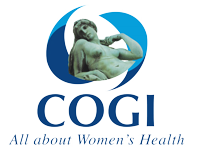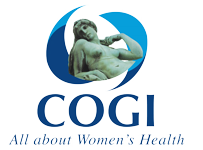This website uses cookies so that we can provide you with the best user experience possible. Cookie information is stored in your browser and performs functions such as recognising you when you return to our website and helping our team to understand which sections of the website you find most interesting and useful.
Kypros Nicolaides
Hans Nijman
May 1, 2022
Scott Nelson
July 13, 2017
Kypros Herodotou NICOLAIDES
Qualifications:
1974 Biochemistry and Physiology BSc (1st class honours), King’s College, London University.
1978 Medicine, MBBS, King’s College Hospital, London University.
1984 Obstetrics and Gynaecology, MRCOG.
2014 Obstetrics and Gynaecology, FRCOG.
Present post 1992-:
Professor of Fetal Medicine, King’s College, London University.
Director Harris Birthright Research Centre for Fetal Medicine, King’s College Hospital, London
Awards:
1. Ian Donald Gold Award for Highest Contribution in Ultrasound, International Society Ultrasound in Obstetrics & Gynecology, 1999
2. Eric Saling Award for Highest Scientific Contribution in Perinatal Medicine, World Association of Perinatal Medicine, 2001
3. Excellence in Letters, Culture and Science, Government of Cyprus, 2004
4. Honorary Fellowship of the American Institute of Ultrasound in Medicine, USA 2004
5. Membership of the International Academy of Perinatal Medicine, Barcelona, Spain 2005.
6. Spinoza Chair, University of Amsterdam, The Netherlands 2010
7. European Maternity Prize for distinction in professional career and dedication to the field of Perinatal Medicine, European Association of Perinatal Medicine, 2014
8. Eardley Holland Gold Medal for outstanding contribution to the science, practice and/or teaching of Obstetrics and Gynaecology, Royal College of Obstetricians and Gynaecologists, 2015
9. Naguib Pasha Mahfouz Award, Cairo University, Egypt, 2018
10. Medal of exceptional services to the Republic of Cyprus, 2018
11. Member of the USA National Academy of Medicine in recognition for outstanding professional achievement and commitment to health and medicine, USA 2020
12. Argo award given to distinguished figures of the Greek diaspora for excelling in their field and promoting Greece abroad, Athens Greece 2021.
13. Grand Cross of the Order of Makarios III, Highest award of the Republic of Cyprus, 2021
14. Gold Cross of The Order of the Phoenix, Republic of Greece, 2022
15. Fellowship of Kings College, London University, UK, 2022
16. Chesley award. Highest award of the International Society for the Study of Hypertension in Pregnancy in recognition of sustained and substantial contribution to research in pre-eclampsia. 2022.
17. Honorary Doctorates in Medicine
• National and Kapodistrian University of Athens, Greece 2005
• University of Warsaw, Poland 2009
• University of Bucharest, Romania 2009
• University of Jinan, China 2010
• Palacky University of Olomouc, Czeck Republic 2011
• University of Ioannina, Greece 2012
• European University of Cyprus, Cyprus 2013
• University of Thessaly, Greece 2016
• Aristotelion University of Thessaloniki, Greece 2017
• Medical University of Preven, Bulgaria 2017
• University of Cyprus, Cyprus 2017
• University of Leuven, Belgium 2019
• University of Pao Paolo, Argentina 2019
Scientific Activities:
• Published 1,603 peer-review papers in Scientific Journals. His h-index is 184 (highest of all obstetricians and gyaecologists in the world) and his work has been cited more than 135 thousand times.
• Edited or wrote 14 books. Introduced internet based courses for health care professionals and patients
• Supervised 66 doctors to undertake research leading to postgraduate qualifications and has provided training in Fetal Medicine to 600 doctors from 50 countries.
Professional Activities:
1. Director of the Research Centre for Fetal Medicine, King’s College Hospital
This centre, which was opened in 1984 by Princess Diana, was the first Fetal Medicine Centre in Britain and is the biggest one in the world. More than 20,000 patients are examined each year and many of these patients are referred from other hospitals in Britain and other countries because of serious complications of pregnancy. In addition, more than 200 doctors from all over the world visit the centre to observe and receive training.
2. Founder and Chairman of the Fetal Medicine Foundation
This charity was set up in 1995. The main source of income is a private clinic which donates all its profits to the charity. The aims are to promote research and training in Fetal Medicine throughout the World. More than £45,000,000 have been donated to finance the training of many doctors from all over the world and to carry out major multicentre studies on screening and prevention of preterm delivery and preeclampsia, which are the leading causes of perinatal mortality. The Foundation has also introduced the yearly World Congress in Fetal Medicine and has implemented a series of educational courses throughout the World.
3. Has been a member of several study groups of the Royal College of Obstetricians and Gynaecologists, the chairman of the Educational Committee of the World Association of Perinatal Medicine and the chairman of the Scientific Committee of the International Society Ultrasound in Obstetrics and Gynecology.
AREAS OF RESEARCH
1. Screening for chromosomal defects
Developed a new method based on a combination of ultrasound findings and maternal serum biochemistry at 11-13 weeks. This method has evolved over the last 26 years from: (i) observational phase to (ii) development of a model, to (iii) controlled clinical implementation, to (iv) establishment of an international network of centres in more than 60 countries for continuing audit and development. It has also evolved by the introduction of new sonographic and biochemical markers into the most effective method of early screening worldwide. Recently, several studies have examined the effectiveness of cfDNA analysis of maternal blood and a proposal that this method should be offered contingent on the results of the combined test.
2. Screening for fetal abnormalities
Described a sonographic method for the prenatal diagnosis of spina bifida, which is now performed world wide. Continuing research arising from the ultrasound screening programme at 11-13 weeks has established the effectiveness of this scan in firstly, detecting a wide range of fetal defects, with emphasis on cardiac abnormalities, which are the commonest cause of neonatal and infant mortality from congenital defects, and secondly, describing more that 50 congenital defects and genetic syndromes in association with increased nuchal translucency thickness.
3. Screening for and prevention of preterm birth
Preterm birth is the main cause of perinatal death and handicap in survivors. A series of studies over the last 15 years have established that first, effective screening can be provided by sonographic measurement of cervical length at 20 weeks, second, a major multicentre RCT has shown that cervical cerclage does not prevent preterm birth, third, a major multicentre RCT has shown that the prophylactic
use of progesterone in women with a short cervix can reduce the rate of preterm birth by about 40%, fourth, two major multicentre RCTs have shown that the use of a cervical pessary in singleton and twin pregnancies does not prevent preterm birth.
4. Screening for and prevention of pre-eclampsia and fetal growth restriction
This is an important cause of maternal mortality and morbidity and fetal mortality as well as possible causes of adult cardiovascular and endocrine disease. A series of studies over the last 20 years have established that: first, growth restricted fetuses demonstrate fetal hypoxemia and impaired biochemistry, metabolism, hematology and immunology, second, fetal hypoxemia can be predicted non-invasively by Doppler ultrasound demonstrating a redistribution in the fetal circulation, third, effective screening for pre-eclampsia and fetal growth restriction can be provided by Doppler sonographic measurement of blood fow in the uterine arteries at 20 weeks of pregnancy and fourth screening for pre-eclampsia and fetal growth restriction can be provided by a combination of Doppler measurement of blood fow in the uterine arteries, mean arterial pressure and serum placental growth factor at 11-13 weeks’ gestation. We performed major multicentre RCTs which showed that the use of low dose aspirin after 20 weeks in high-risk pregnancies does not prevent preeclampsia, but treatment starting from 12 weeks is highly effective.
5. Fetal therapy
Research in our centre over the last 35 years has established a series of effective intrauterine therapeutic interventions including fetal blood transfusions for red cell isoimmunized pregnancies, fetal platelet transfusions for alloimmune thrombocytopenia, pleuro-amniotic shunting for fetal pleural effusions, endoscopic laser separation of communicating placental vessels in monochorionic twins with severe twin transfusion syndrome or selective growth restriction and in collaboration with professors Jan Deprest and Eduard Gratacos endoscopic placement of a balloon in the fetal trachea in fetuses with diaphragm



